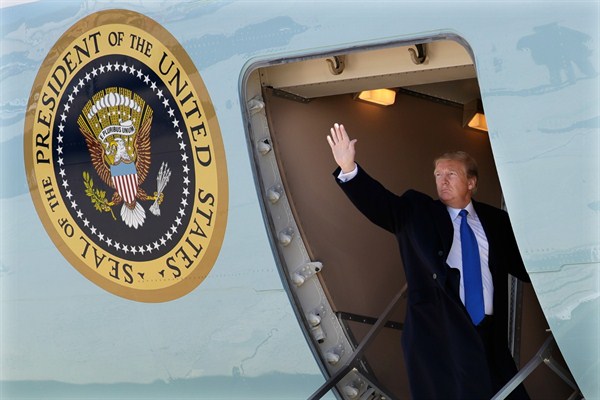In this week’s editors’ discussion on Trend Lines, WPR’s Judah Grunstein and Freddy Deknatel talk about debates over U.S. foreign policy in the context of the 2020 presidential election, particularly the emerging consensus in favor of a strategy of restraint. But how closely does the political embrace of ending America’s “forever wars” and avoiding costly new ones resemble the vision of restraint promoted by its policy-minded advocates? And how easy will it be for the next president to follow through on promises of restraint once in office?
If you like what you hear on Trend Lines and what you’ve read on WPR, you can sign up for our free newsletter to get our uncompromising analysis delivered straight to your inbox. The newsletter offers a free preview article every day of the week, plus three more complimentary articles in our weekly roundup every Friday. Sign up here. Then subscribe.
Listen:
Download: MP3
Subscribe: iTunes | RSS | Spotify
Relevant Articles on WPR:
What Would ‘Restraint’ Really Mean for U.S. Foreign Policy?
Why Restraint Is Winning Over More of the U.S. Foreign Policy Establishment
The Case for Restraint: Drawing the Curtain on the American Empire
What Would a U.S. Grand Strategy of Restraint Look Like?
Why Nigeria Has Responded to Trump’s Travel Ban With Caution, Not Outrage
Bukele’s Politicization of the Military Revives Old Fears in El Salvador
Trend Lines is produced and edited by Peter Dörrie, a freelance journalist and analyst focusing on security and resource politics in Africa. You can follow him on Twitter at @peterdoerrie.
To send feedback or questions, email us at podcast@worldpoliticsreview.com.

